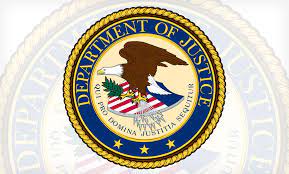DOJ Continues Pace of Healthcare Fraud False Claims Act Prosecutions

False Claims Act prosecutions continue against healthcare executives, physicians and professionals. Last year, DOJ recovered over $5.6 billion in FCA enforcement. DOJ expects total recoveries to increase in 2022. Over 95 percent of False Claims Act prosecutions involved healthcare fraud and kickbacks.
Two Doctors and Eight Others Indicted for Healthcare Kickbacks
In a recent prosecution in the Northern District of Texas, DOJ announced the indictment of ten individuals, including two physicians, in a $300 million healthcare fraud scheme. In the 26-count indictment, the defendants were charged with healthcare fraud conspiracy, conspiracy to pay and receive healthcare kickbacks, paying illegal kickbacks and soliciting kickbacks.
The Indictment alleges that the founders of three lab companies, including Unified Laboratory Services, Spectrum Diagnostic Laboratory and Reliable Labs, paid kickbacks to induce medical professionals to order medically unnecessary lab tests, which they then billed to Medicare and other federal healthcare programs.
Two physicians and a nurse practitioner accepted the bribes and order millions of dollars of unnecessary and fraudulent tests. Two of the lab companies disguised the kickbacks as payments for medical advisory services, salary offsets, lease payments and marketing commissions.

The lab companies worked through marketing companies to pay doctors hundreds of thousands of dollars for “advisory services” which were never performed in return for lab test patient referrals. The marketing companies also paid portions of the doctors’ staff salaries and a part of their office leases, which was conditioned on the number of lab tests they referred each month. In some cases, the marketers made direct payments to the physician’s spouse.
In another part of the scheme, the founder of Spectrum and unified labs, convinced the co-founders of Reliable to convert Reliable into a physician-owned laboratory. Reliable offered physicians ownership opportunities contingent on the physicians meeting daily patient referral numbers. In some case, the marketers advanced such kickbacks to ensure that the physicians did not refer patients to other labs.
As alleged in the Indictment, the three laboratories controlled by the defendants submitted more than $300 million in billing by federal healthcare programs. The two physicians charged in the indictment received more than $400,000 and $300,000, respectively, in kickbacks.
The ten individuals indicted as part of the healthcare kickbacks and fraud scheme include two physicians, three owners of two of the laboratories, the chief operating officer for two of the laboratory companies, three individuals from the marketing agencies, and one nurse practitioner.
Seven Doctors and a Hospital CEO Pay $1.1 Million to Settle Kickback Case
Seven Texas doctors and a hospital CEO agreed to pay $1.1 million to resolve Anti-Kickback and Stark Law charges. The defendants agreed to cooperate with ongoing and related investigations of fraud. The hospital CEO agreed to a 3-year exclusion from participating in any federal healthcare programs.

The settlement resolved charges against seven Texas doctors surrounding illegal remuneration from eight management service organizations (MSOs) in exchange for ordering laboratory tests from Little River Healthcare, True Health Diagnostics, and Boston Heart Diagnostics Corporation. Little River funded the illegal remunerations to the physicians based on volume-based commissions that were paid to independent contract recruiters who used MSOs to pay numerous doctors for their referrals. The MSO payments to the doctors were disguised as investment returns but in fact were based on and given in exchange for the doctors’ referrals. The seven Texas doctors are cooperating with the ongoing prosecution and continuing investigation.
The CEO of Stamford Health reached a separate settlement. The CEO was approached by representatives of True Health and a partner company, who proposed a billing arrangement for laboratory services by which the hospital could profit. Under the proposal, Stamford Health coordinated with True Health and Boston Heart representatives and paid volume-based commissions to independent contractor recruiters, who used MSOs to make payments to doctors that were disguised as investment returns but were actually payments for patient referrals. The CEO agreed to pay a penalty of $50,000 and to be excluded from federal healthcare programs for three years.















1 Response
[…] Source link […]